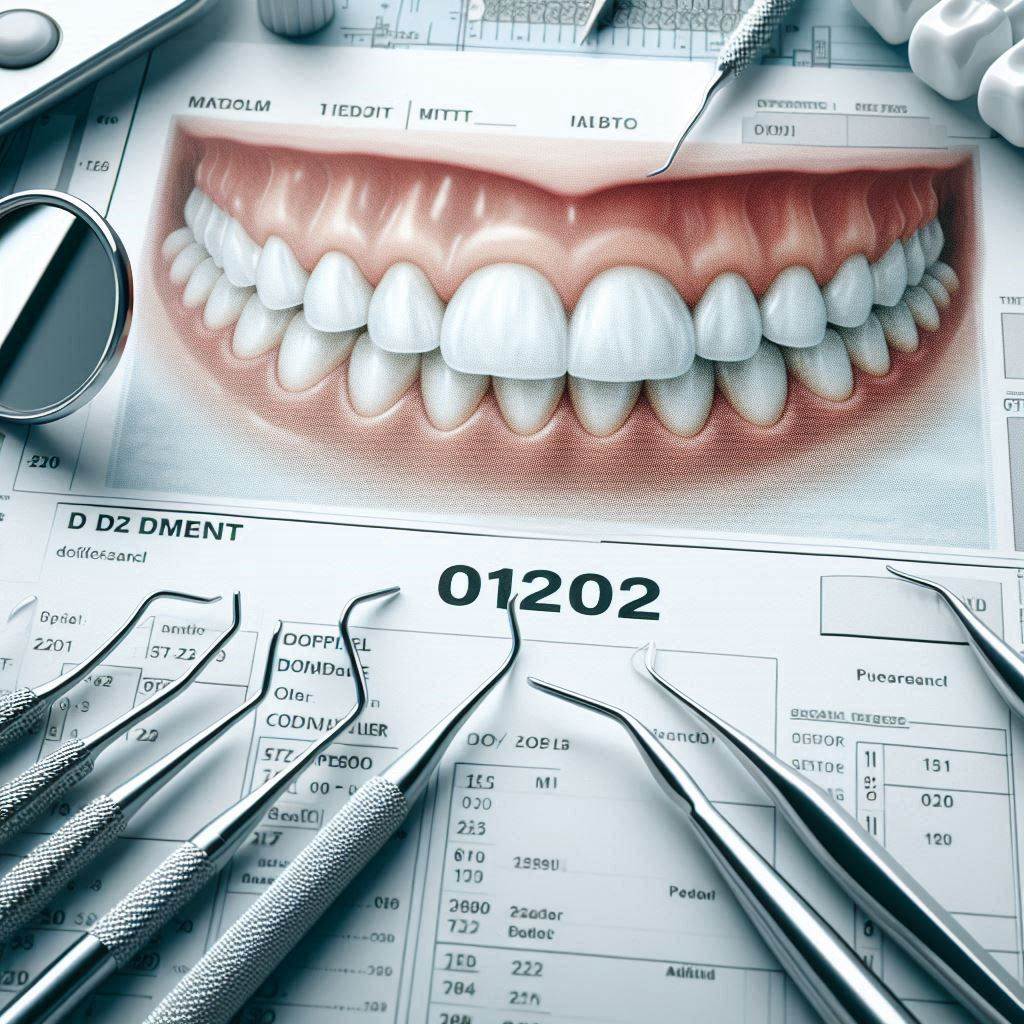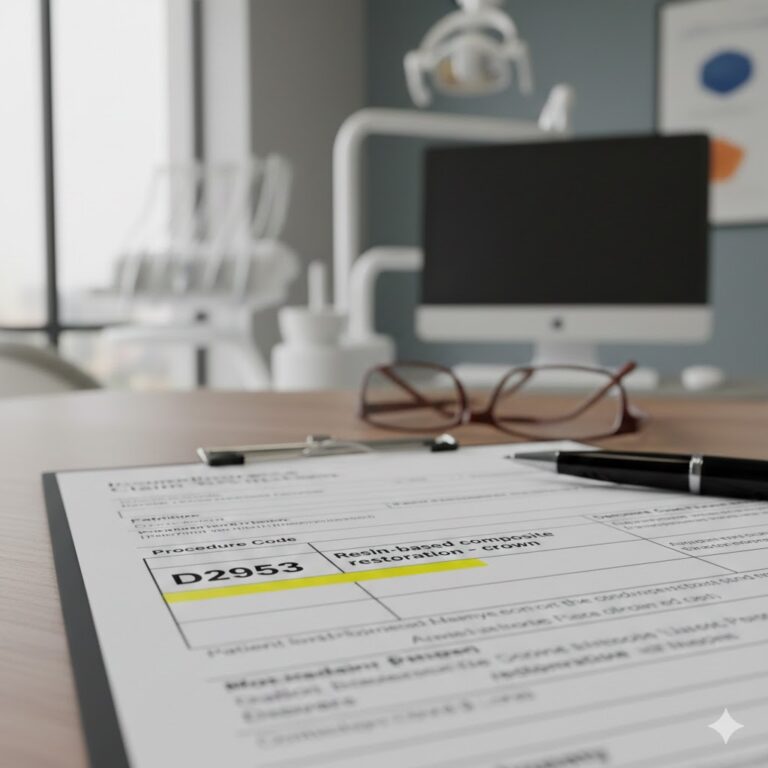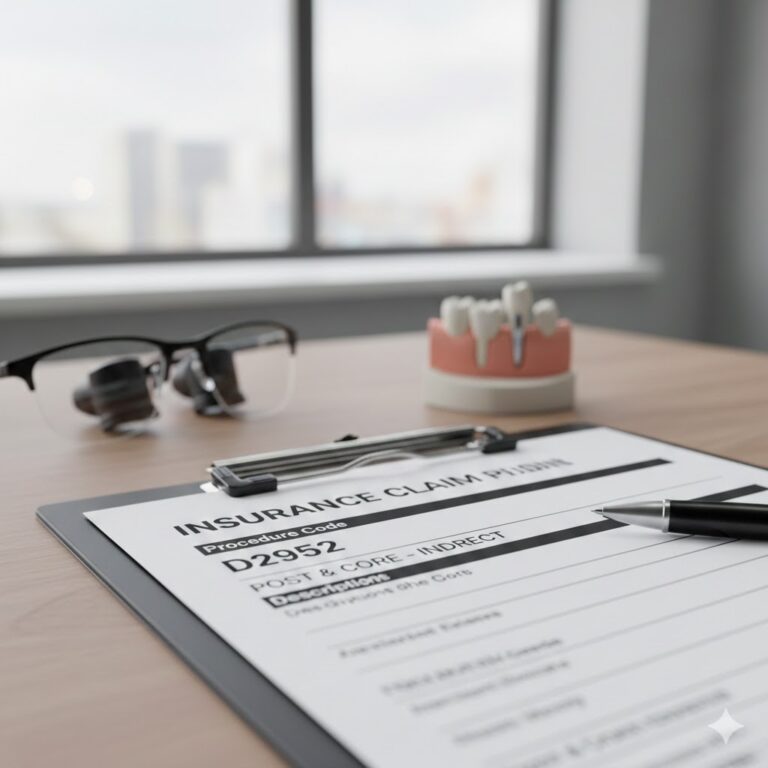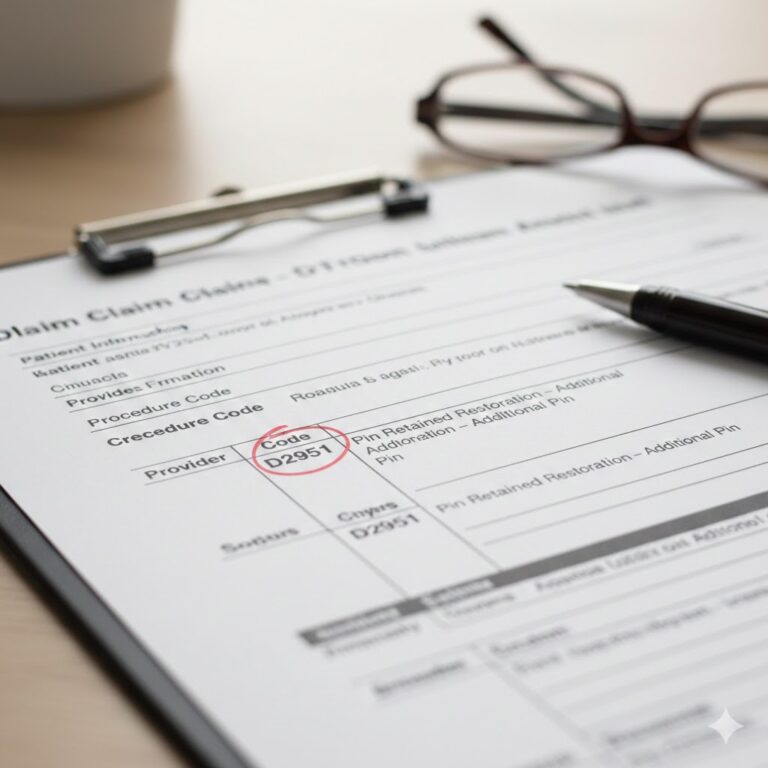Dental Code 01202
Regular dental check-ups are crucial for maintaining optimal oral health, and Dental Code 01202 (Periodic Oral Evaluation – Established Patient) plays a pivotal role in preventive care. This code is used when a dentist performs a routine re-examination of an established patient to assess their oral health status, detect early signs of disease, and recommend necessary treatments.
Unlike a comprehensive exam (D0150), which is more in-depth and typically performed for new patients, 01202 focuses on monitoring changes in a patient’s oral health over time. This article provides an in-depth exploration of D01202, including its clinical applications, billing guidelines, and best practices for implementation.

2. Understanding Dental Code 01202
Definition and Purpose
Dental Code 01202 falls under the American Dental Association (ADA) Current Dental Terminology (CDT) and is defined as:
“An evaluation performed on a patient of record to determine any changes in the patient’s dental and medical health status since a previous comprehensive or periodic evaluation.”
This code is not for new patients but rather for established patients who return for routine check-ups, typically every six months.
When Is It Used?
- Regular check-ups (e.g., every 6 months)
- Follow-up visits after treatment
- Monitoring existing conditions (e.g., gum disease, tooth decay)
3. Key Components of a Periodic Oral Evaluation
A 01202 evaluation includes several critical steps:
1. Patient History Review
- Updates on medical conditions, medications, allergies
- Changes in dental symptoms (pain, sensitivity, bleeding gums)
2. Clinical Examination
- Soft Tissue Assessment (lips, tongue, gums)
- Hard Tissue Examination (teeth, existing restorations)
- Periodontal Screening (gum health, pocket depths)
3. Radiographic Assessment (If Needed)
While not always required, X-rays may be taken if there are signs of:
- Tooth decay
- Bone loss
- Impacted teeth
4. Risk Assessment
- Caries (cavity) risk
- Periodontal disease risk
- Oral cancer risk
5. Oral Cancer Screening
- Visual and tactile examination of oral tissues
- Referral if suspicious lesions are found
4. Differences Between 01202 and Other Evaluation Codes
| Code | Description | When to Use |
|---|---|---|
| D0120 | Periodic Oral Evaluation (Established Patient) | Routine check-ups |
| D0150 | Comprehensive Oral Evaluation (New Patient) | First-time visits |
| D0140 | Limited Oral Evaluation (Problem-Focused) | Emergency or specific concerns |
- 01202 is not for emergencies (use D0140 instead).
- D0150 is more detailed and used for new patients.
5. Insurance and Billing Considerations
Frequency Limitations
- Most insurance plans cover two 01202 exams per year (every 6 months).
- Some plans may require X-rays to justify medical necessity.
Documentation Requirements
- Detailed notes on findings (e.g., “No new caries detected, gingiva within normal limits”).
- Justification for X-rays if taken.
6. Best Practices for Dentists Performing 01202
✅ Effective Patient Communication
- Explain findings in simple terms.
- Encourage preventive care (e.g., fluoride treatments, sealants).
✅ Accurate Documentation
- Record all observations (even if normal).
- Note any recommended follow-up treatments.
7. Common Questions and Misconceptions
❌ Myth: “01202 is the same as a cleaning.”
✅ Fact: A cleaning (D1110) is separate—01202 is the exam only.
❌ Myth: “I can bill 01202 for a new patient.”
✅ Fact: Use D0150 for new patients.
8. Conclusion
Dental Code 01202 is essential for monitoring established patients’ oral health through structured evaluations. Proper use ensures accurate billing, preventive care, and early disease detection. By following best practices in documentation and patient communication, dentists can maximize the benefits of periodic exams while maintaining compliance with insurance guidelines.
9. FAQs
Q1: How often can 01202 be billed?
Most insurers allow twice per year (every 6 months).
Q2: Can 01202 be billed with a cleaning?
Yes, it is often billed alongside prophylaxis (D1110).
Q3: What if a patient needs X-rays during 01202?
Additional codes (e.g., D0210 for bitewings) may be billed separately.


